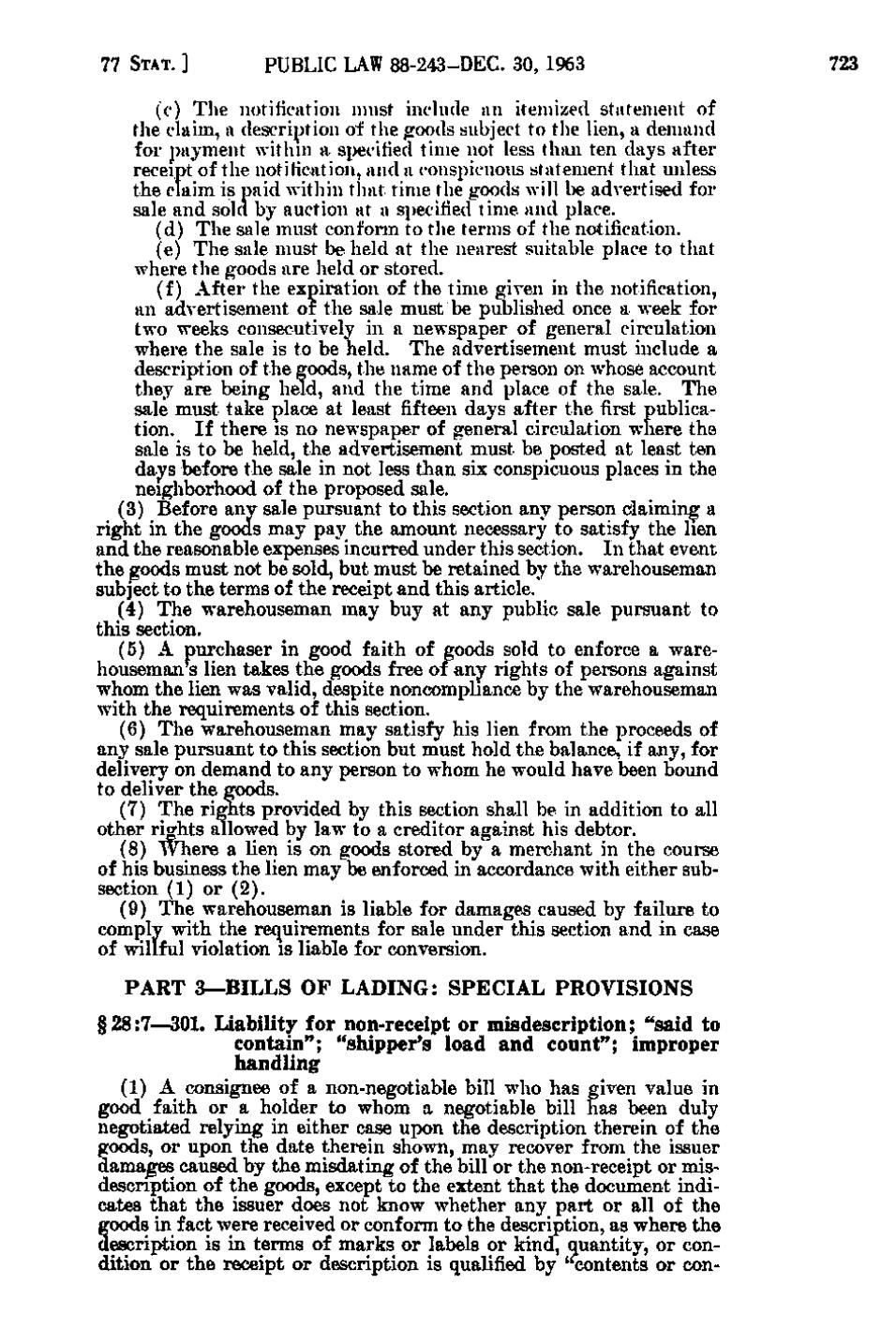77 STAT. ]
PUBLIC LAW 88-243-DEC. 30, 1963
(c) The notification nuist include an itemized statement of the claim, a description of the ^oods subject to the lien, a demand for payment within a specified time not less than ten days after receipt of the notification, and a conspicuous statement that unless the claim is paid within that time the goods will be advertised for sale and sold by auction at a specified time and place. (d) The sale must conform to the terms of the notification. (e) The sale must be held at the nearest suitable place to that where the goods are held or stored. (f) After the expiration of the time given in the notification, an advertisement of the sale must be published once a week for two weeks consecutively in a newspaper of general circulation where the sale is to be held. The advertisement must include a description of the goods, the name of the person on whose account they are being held, and the time and place of the sale. The sale must take place at least fifteen days after the first publication. If there is no newspaper of general circulation where the sale is to be held, the advertisement must be posted at least ten days before the sale in not less than six conspicuous places in the neighborhood of the proposed sale. (3) Before any sale pursuant to this section any person claiming a right in the goods may pay the amount necessary to satisfy the lien and the reasonable expenses incurred under this section. In that event the goods must not be sold, but must be retained by the warehouseman subject to the terms of the receipt and this article. (4) The warehouseman may buy at any public sale pursuant to this section. (5) A purchaser in good faith of goods sold to enforce a warehouseman s lien takes the goods free of any rights of persons against whom the lien was valid, despite noncompliance by the warehouseman with the requirements of this section. (6) The warehouseman may satisfy his lien from the proceeds of any sale pursuant to this section but must hold the balance, if any, for delivery on demand to any person to whom he would have been bound to deliver the goods. (7) The rights provided by this section shall be in addition to all other rights allowed by law to a creditor against his debtor. (8) Where a lien is on goods stored by a merchant in the course of his business the lien may be enforced in accordance with either subsection (1) or (2). (9) The warehouseman is liable for damages caused by failure to comply with the requirements for sale under this section and in case of willful violation is liable for conversion. PART 3—BILLS OF LADING: SPECIAL PROVISIONS §28:7—301. Liability for non-receipt or misdescription; "said to contain"; "shipper's load and count"; improper handling (1) A consignee of a non-negotiable bill who has given value in good faith or a holder to whom a negotiable bill has been duly negotiated relying in either case upon the description therein of the goods, or upon the date therein shown, may recover from the issuer damages caused by the misdating of the bill or the non-receipt or misdescription of the goods, except to the extent that the document indicates that the issuer does not know whether any part or all of the goods in fact were received or conform to the description, as where the description is in terms of marks or labels or kind, quantity, or condition or the receipt or description is qualified by "contents or con-
723
�
